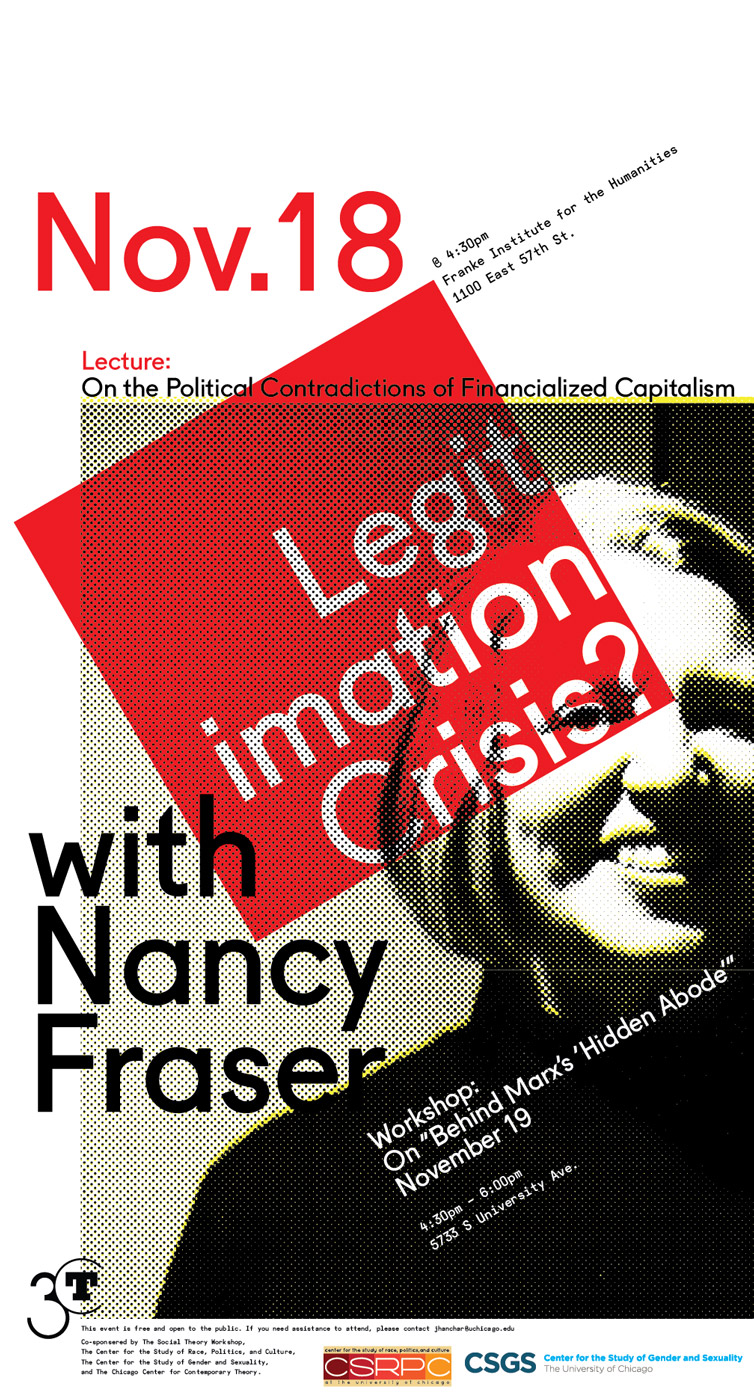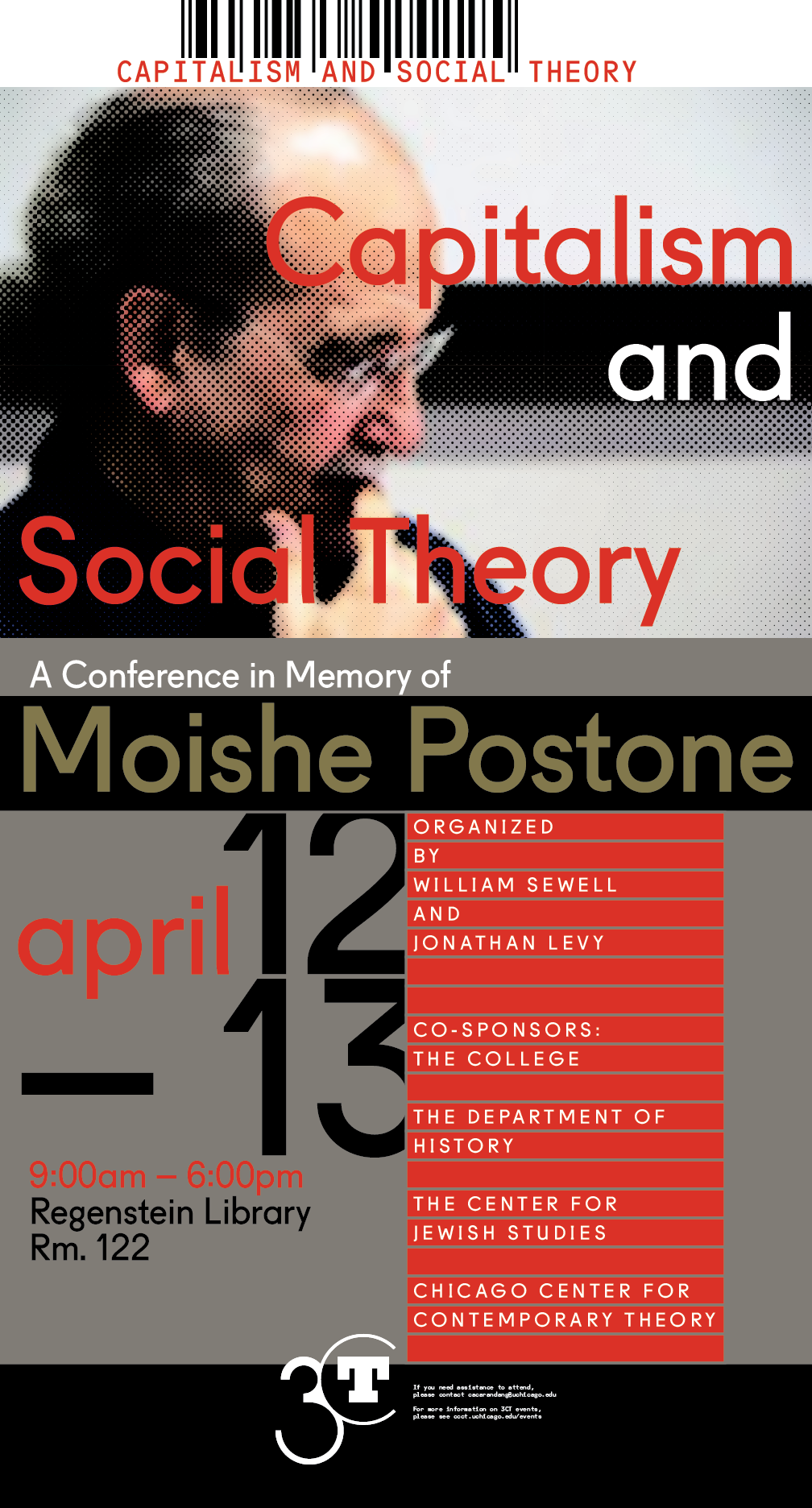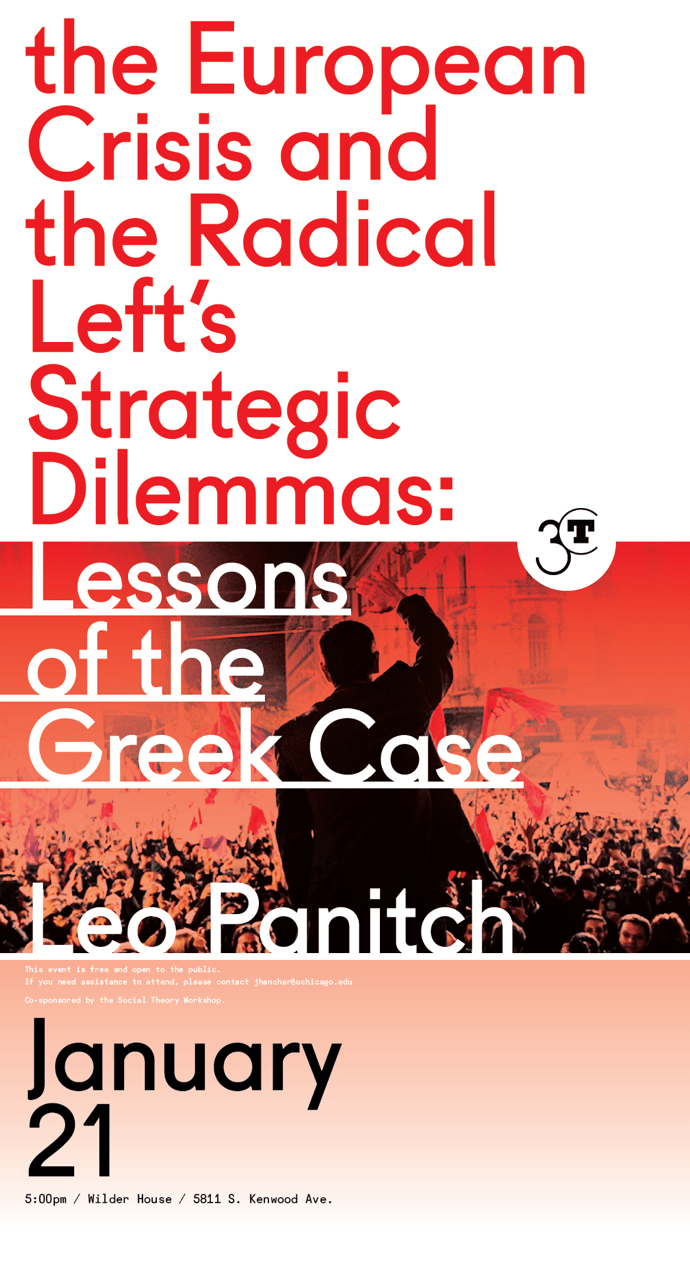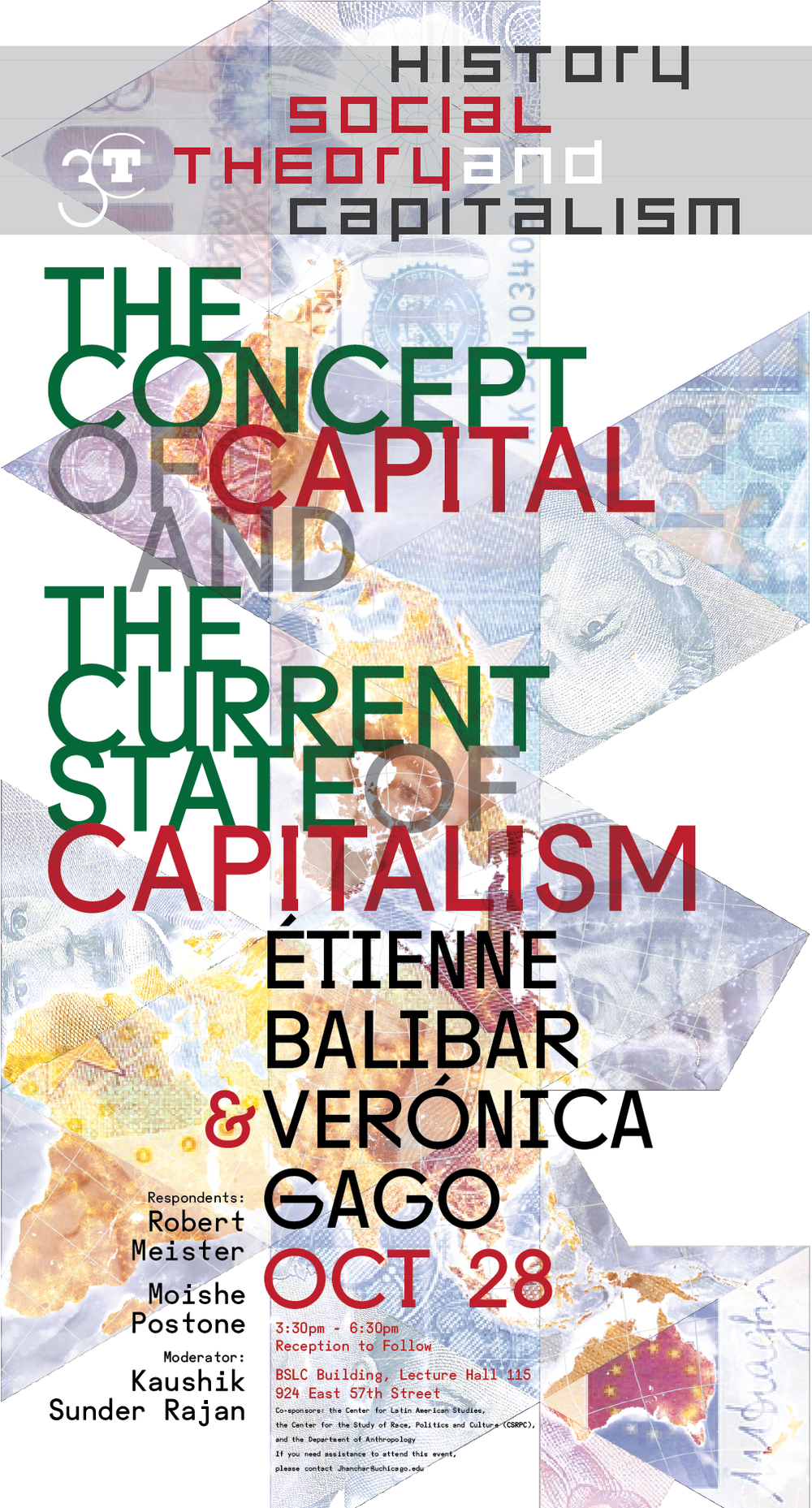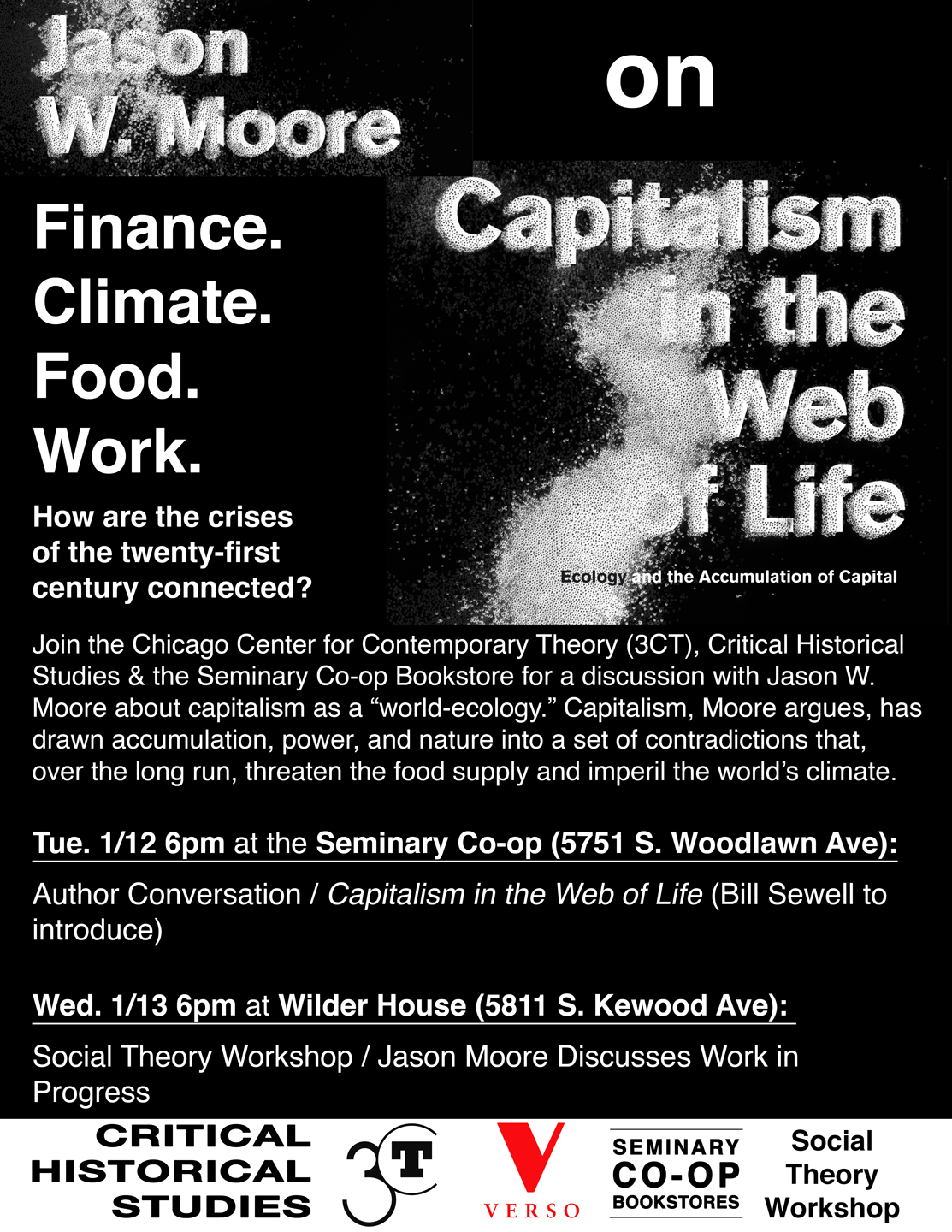History, Social Theory, and Capitalism
Principal Investigator(s): Moishe Postone & William H. Sewell, Jr.Affiliated Faculty: Michael Dawson (Political Science), Linda Zerilli (Political Science) Andreas Glaeser (Sociology), Gary Herrigel (Political Science), Patchen Markell (Political Science), Amy Stanley (History), Bruce Cumings (History), Paul Cheney (History), Fredrik Albritton-Jonsson (History), James Sparrow (History)
The ongoing global economic crisis poses a serious challenge to our understanding of large-scale social processes and, hence, of our own historical circumstances. Global capitalist society appears to be entering a new phase, yet the social sciences seem ill equipped to elucidate the systemic dynamics of this transformation. Against this background, the 3CT module on History, Social Theory, and Capitalism seeks to interrogate the relation of social and economic inquiry to changes in the large-scale configurations of society, economy and polity. Viewed retrospectively, there appears to be a relationship between the success of particular social-scientific paradigms and their historical contexts. For example, Keynesian economics and the positivist, development-oriented social sciences appeared most successful between the 1930s and 1970s, that is, during the epoch that began with the crisis of laissez-faire capitalism and ended with the crisis of state-centered economic configurations. Welfare-state “developmentalist” paradigms were displaced during the 1970s by an updated neo-classical economics that went hand in hand with an emerging system of financialization, globalization, and deregulation. Concomitantly, the social sciences witnessed a turn away from the study of large structures and processes towards “postmodern anti-foundationalism” in some cases and the “micro-foundations” of social life in others. (And in some instances these two orientations were combined.) Dominant for the last three decades, these approaches now seem to have reached their limits—unable to grasp adequately our current moment of transformation. The shift away from the study of large-scale historical processes and structures is, we suggest, in part responsible for the inability of the social sciences to delineate the contours of what has become a systemic global economic crisis. Moreover, the history of the social sciences in the past century suggests that all of these paradigms must be understood reflexively, as modes of inquiry that are not independent of time and place. We hope that this multifaceted initiative will contribute importantly to a much-needed process of reflection and re-examination in the social sciences, and will help reinvigorate the University of Chicago’s tradition of generating innovative fundamental approaches to the study of our social universe.
This module has three intertwined goals:
- to clarify the complex nature of the period that is now ending so that we can begin to grasp the contours of the period we are entering
- to reassess and historically contextualize intellectual paradigms so that we can make explicit a rigorous historically reflexive paradigm for the study of modern social and economic life
- and to understand the failure of many critical intellectual projects to adequately respond to the problems and challenges of the previous period
